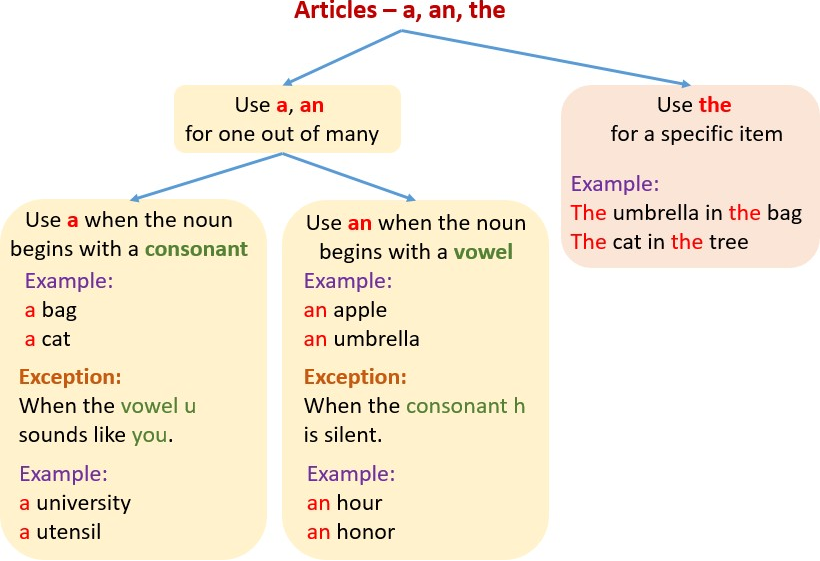A determiner is used before a noun to specify quantity (e.g., “one dog,” “many dogs”) or to clarify what the noun refers to (e.g., “my dog,” “that dog“, “the dog”). All determiners can be classified as one of the following:
- Article (a/an, the)
- Demonstrative (this, that, these, those)
- Possessive (my, your, his, her, its, our, their)
- Quantifier (many, much, more, most, some)

Examples of determiners in a sentence:
Articles:
•The man is behaving so strangely.
Demonstratives:
•These apples are good.
•Those mangoes are rotten.
•That place is so crowded
Possessives:
•His father is out of the city.
•Do you know its functions?
•Are you going to their house?
•It’s my book.
•Which is your car?
Quantifiers:
•Can I eat some rice?
•He was our most famous president.
•We ate all the food.
Numerals:
•There are three dogs in the street.
•Each team consists of eleven players.
Ordinal:
•They invited me to a second interview.
•This is the person whose name is written here.
| Fill the following blanks with the correct determiner:
1. I would like to ask _questions. |
| 2. I didn’t find _ there. |
|
| 3. Very politicians are honest. |
| 4. Only politicians are honest. |
|
| 5. agreed to come with me. |
| 6. She doesn’t have _ friends. |
|
| 7. I have to help me. |
| 8. There are birds on the tree. |
|
| 9. Does know the answer? |
| 10. I don’t have money. |
|
|



